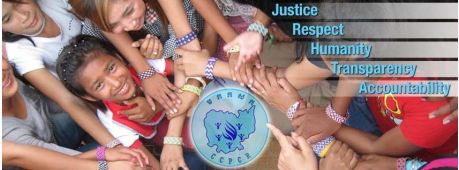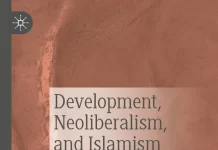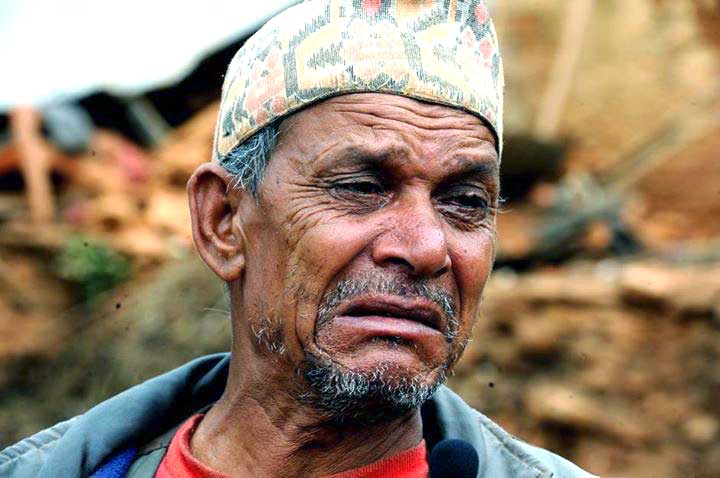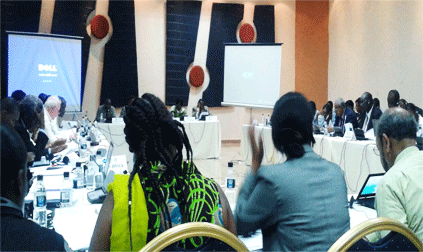by Gareth Mace
“We don’t know when we will die, [so] I like to do as much as I can. I want to try to make a difference.” The words of Nget Thy (pronounced “Tee”), Executive Director of The Cambodian Center for the Protection of Children’s Rights (CCPCR), could so easily be passed off as empty platitudes by those sceptical of motives behind success in the development field. But all it takes is one meeting with Mr. Thy to see that here is a man who is most certainly not in the work of social good to further his own ego.
His journey from a poor orphan up through the ranks of one of the country’s longest established children’s NGOs is certainly not something that he feels any need or inclination to shout from the rooftops. “If it’s good for CCPCR, I’m okay [to do it],” he replied to an interview request.
See Also: Cambodia: Inclusive Education Combats Social Barriers
CCPCR was established in 1994 with a mission to ensure that all children and youth have equal rights in society and are free from all forms of violence and exploitation. It now has active projects throughout Cambodia—projects like the Phnom Penh rehabilitation shelter for girl survivors of abuse, exploitation and trafficking—that focus on key issues like child labour, trafficking and abuse through diverse activities encompassing prevention and community awareness, as well as the rehabilitation and reintegration of those rescued from trauma.
Thy, a dedicated husband and a father to three kids, is as kind-hearted and gracious a man as you could hope to meet. But it is his ingenuity and endless endeavour to progress his organisation that really sets him apart from his peers. Thy works seven days a week and can’t remember the last time he had a holiday. “I just work—I never have [thought] about time. When I’m tired I just take a rest or eat some food,” he says. Always putting his work first, he spends much of his spare time reading documents and articles to generate ideas for CCPCR.
Undoubtedly what drives and inspires Thy is the circumstances of his own childhood—orphaned at a young age, him and his elder sister experienced desperate poverty and hunger. “It was really difficult. Often we would just eat rice and not very much,” he recalls. “Knowing and remembering those struggles has definitely inspired me. I want to help poor people. I want to help children get [an] education so that they can get [a] good job—when they have opportunities, they can do the same as me,” he says. As a result of his influence, access to education and empowerment through vocational training are key to the CCPCR’s philosophy.
![]()
Mr. Thy’s own crucial opportunity came as a young adult in 1992, when he passed enrolment examinations to study at Cambodia’s Prek Leap National College of Agriculture. “It was so great for me!” he enthuses with an infectious smile as he remembers the opportunity that a move to the capital Phnom Penh presented for him. Yet, as he would quickly learn, this next chapter would not be without its challenges. With no close family or any friends in the city he hoped to find shelter at a Pagoda—a Hindu or Buddhist temple or sacred, many-tiered building characteristic of India, Cambodia and countries of the Far East. Unfortunately, two residences turned him away because he was a stranger. This distrust was symptomatic of the time when Cambodia was dominated by the Pol Pot regime—Pol Pot was a Cambodian Maoist revolutionary who led the oppressive Khmer Rouge from 1963 until his death in 1998 that was responsible for the death of more than two million Cambodian people (21 per cent of the population).
See Also: Playing For A Goal in Cambodia
Fortunately, Thy eventually found a home at a Pagoda close to the University, where he lived with other students and assisted the monks with alms collecting, cooking and house work in return for food and lodgings. With the day sometimes starting as early as 4.30 a.m., this experience was exhausting. But Thy worked hard as he was grateful for the opportunity and he understood the importance of contributing to the spiritual pursuits of the resident monks.
Through his work, Thy made a good impression on everyone he met and soon was offered a leadership position in a new orphanage set-up by a wealthy foreigner. “I was so lucky! They gave me $50 per month, which was a lot for me at the time. I would buy vegetables and cook with them,” he remembers. “This job was so important for me. I learned many things like how to be more independent and responsible through writing reports and things like that. This was when I realised I wanted to work for a community organisation,” he says.
Following his graduation from Prek Leap—and after a handful of low paid stopgap jobs—it wasn’t long before Thy found himself as an employee of the recently established CCPCR. He earned himself a contract as a case investigator in 1996 and was promoted to reintegration officer in 1997, before landing the role of Project Manager in Kampong Cham Province in 1999 and Sihanouk Ville two years later. The organisation had become the ideal home for this empathetic and hard-working young man.
His progress and ability would next take him to the Philippines. Following CCPCR’s recommendation, he was awarded a scholarship to study at South East Asia Rural Social Leadership Institute within Seasolin Xavier University in Cacaya De Oro City hat gave him the opportunity to leave his home country for the first time in his life to earn a Diploma in Social Development and Leadership. He subsequently re-joined the CCPCR in 2004, became its Deputy Director in 2007 and completed his meteoric rise three years later by becoming the top man in the organization—the Executive Director.
Regrettably, he did not have the luxury of basking in this proud achievement as the organisation was in the midst of one of the most testing financial situations it had ever known. “Because of the economic crisis, funding became very limited around that time and I had to work so hard to reform and reorganise to allow us to continue our work. It was very difficult,” he says.
Even now, funding is an issue rarely off the agenda for long and it can cause anxiety: “When things are going well and I see the direct results of our work and the faces of the children we are helping…I love my job so much. Other times it’s just so stressful,” says Thy.
So what does Thy hope the organisation can achieve while he is at the helm? “Oh so much!” he smiles again. “I would really like us to be more [financially] secure. To do this, it would be great if we could own our own shelters, instead of renting them, and to have our own income-generating business, so we don’t have to rely on the donors so much,” he dreams.
Mr. Thy’s route from humble beginnings to great successes have not been dominated by personal ambition, but have been driven by a heartfelt desire to make a difference to the people of his country. He is a truly inspirational figure, whose dedicated journey and unwavering commitment to children’s rights in Cambodia shines a light of hope where the darkness of poverty and justice dominates.
Gareth Mace is the Cambodia country-correspondent for GSDM. He is also a Program Coordinator with Village Focus International, an organisation that partners with CCPCR on the Phnom Penh rehabilitation shelter project.
Do you know any inspiring stories of people making a difference in their community? Share in the comments below.
This article originally appeared in the October 2012 issue of Global South Development Magazine that focused on inspiration.











